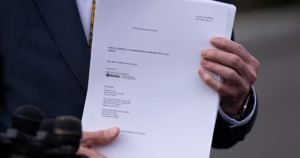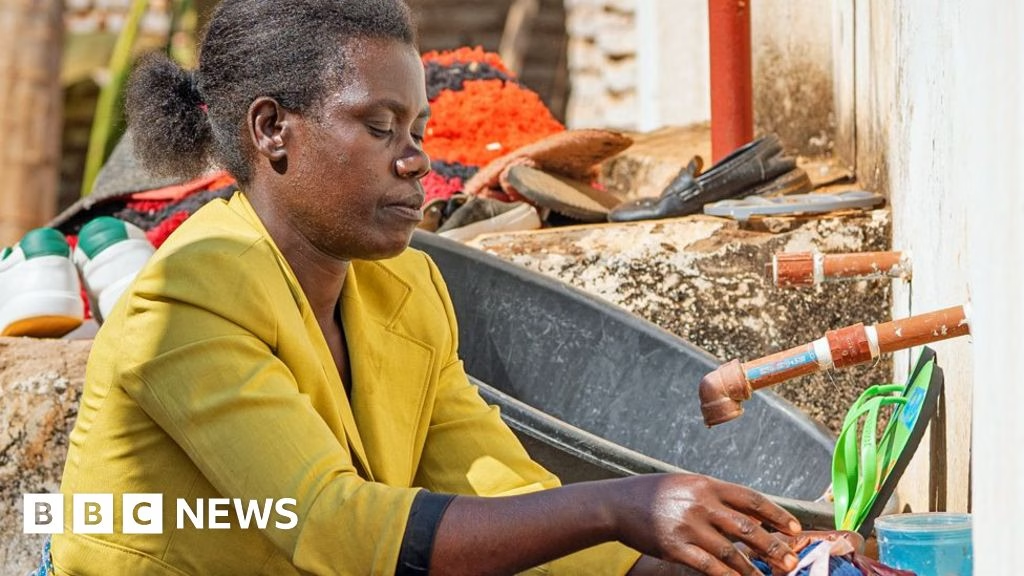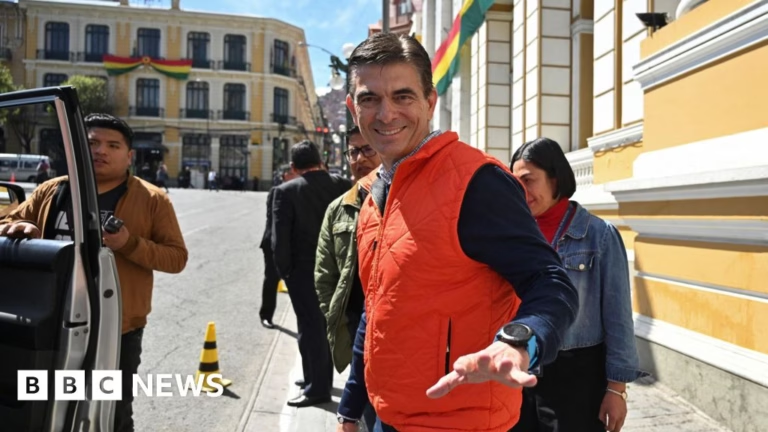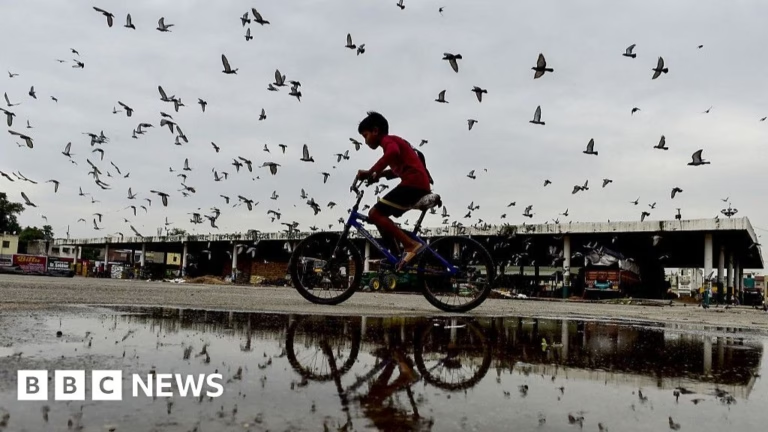BBC News, London & Lilongwe
 Jack McBrams
Jack McBramsSuzanna Kathumba, a domestic worker in Malawi, spends every day thinking of ways she can economise to make her salary of 80,000 kwacha ($46; £34) a month stretch to support her family.
As she wrings a wet cloth from a bucket of water in the living room and starts by wiping down the tables and chairs, she considers her latest ploy to save money.
“I’ve told my youngest children not to get too dirty when playing so we can save on soap,” the 43-year-old told the BBC.
“But it’s hard because children are children, they want to play.”
For the past few months Ms Kathumba, a divorced mother of four working in the capital, Lilongwe, has been struggling to survive on her salary because of the surging prices of goods in the market.
With little financial support from her ex-husband, she is the sole earner for the household. Most of her money goes back to her four children, who live in their home town of Kasungu, around 130km (80 miles) north-west of capital. The two youngest children are still in school and two older ones are unemployed.
In May, the annual inflation rate in Malawi was 27.7% – one of the highest in Africa – a decline from 29.2% in April.
“What is surprising is that salaries are staying the same, but the price of commodities keeps going up on a daily basis,” Ms Kathumba said.
“The money finishes before it even comes. We’re living a very hard life.”
...)
AFP/Getty Images
A recent Ernst & Young report said that Malawi was one of the few countries in the world it considered to have what it called a “hyperinflationary economy” – along with Burundi, Sierra Leone, Sudan, Venezuela and Zimbabwe. This is when there is cumulative inflation over three years of around 100% or more.
The accounting firm said that according to the World Economic Outlook database, compiled by the International Monetary Fund (IMF), Malawi had a three-year cumulative rate of inflation of 116% as of December 2024 and it forecast three-year cumulative rates of inflation of 102% for 2025 and 66% for 2026.
Data from the World Bank also shows that the country is one of the poorest in the world. It estimates that 70% of the southern African nation’s population lives on less than $2.15 a day.
The current cost-of-living crisis has left many citizens, like Ms Kathumba, without any savings.
“I would be lying if I say that I save some money at the end of the month. I have absolutely nothing left,” she said.
“I pay 50,000 kwacha [$29] in school fees each term. Then you need to buy exercise books, food, soap – all from the same small salary. Sugar [1kg] is now 4,500 kwacha [$3].”
(skipping for brevity… continues with reports of economic instability in Malawi, including discussions of foreign currency shortages and government measures to address these issues. Subsequent parts include figures, images of markets and protests, and further quotes from individuals and government officials.)








